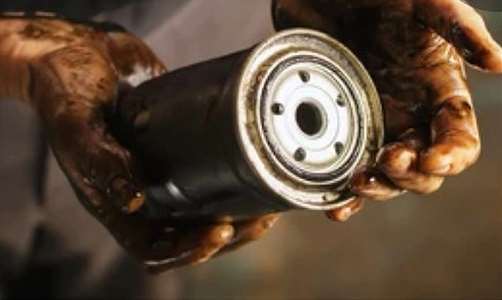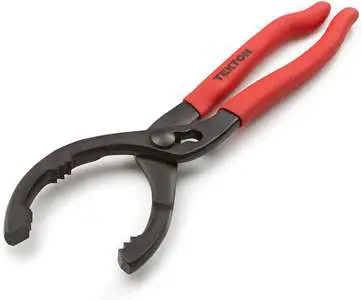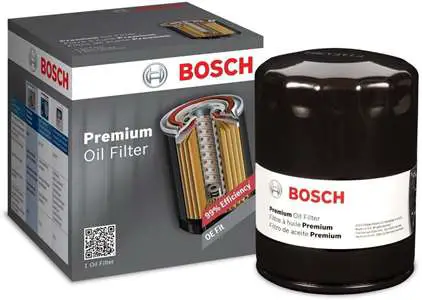
Oil filter plays a very significant role in the maintenance of your car. It is important to check your car’s oil filter during regular car service to maintain consistent engine health. It is because an oil filter has the crucial job of filtering oil, which lubricates the components of your car.
Running countless miles without checking or cleaning the filter can result in a defective oil filter. As oil circulates through numerous components, it takes along several contaminants and debris.
Thus, the prolonged presence of these components in oil results in a clogged oil filter of a car. Want to know about symptoms of clogged oil filters? Read ahead to know more about it!
What Does an Oil Filter Do?
An oil filter serves the basic task of protecting the engine. It works by providing sufficient lubrication to the components in order to function properly.
An oil filter includes a non-return valve which keeps the filter from running dry even when you turn off the engine. Thus, it further facilitates instant lubrication right after you start the engine.
If the car’s oil filter isn’t changed regularly, this may result in a clogged oil filter. This may then allow contaminated oil to get into the engine and can cause great damage.
Clogged Oil Filter Symptoms are:
- Engine sputtering on start
- Engine overheating
- Grinding noise when driving at low speeds
- Low oil pressure warning light
- Grey smoke from exhaust when accelerating
- Burning smell from exhaust
Engine Sputtering on Start
The major function of an oil filter is to provide clean oil to the engine. This oil moves through the components lubricate them and collect heat.
If the car’s oil filter gets clogged, it stops the passage of oil towards the engine. The parts of the car suffer greatly when the motor oil doesn’t reach out into the engine. This reduced to almost zero supply of motor oil results in engine sputtering when you start the car. The faster you go, the more engine will sputter.
If you notice this symptom, quickly get the problem resolved. It is because sputtering causes great damage to the car.
Engine Overheating
With an oil filter clogging, the problems can get really worse. A clogged oil filter restricts the passage of oil towards the engine.
This reduced drizzle of oil doesn’t provide sufficient lubrication to the engine. Consequently, the increasing friction between metal components starts producing heat.
If the regular flow of motor oil does not quickly dissipate this heat, the malfunctioning causes the engine to overheat. This over-heating, if left unresolved, can cause greater damage.
Grinding Noise When Driving at Low Speed
When the motor oil is restricted to reach the engine and other metal components, these parts then start grinding against each other. This process happens as a result of friction. Due to clogged oil filters and resulting friction, two different consequences might occur.
Like previously mentioned, it might cause engine over-heating or may result in grinding noise which is easily audible at slow speed.
Low Oil Pressure Warning Light
Low oil pressure can catastrophically damage your car. If you come across a warning light indicating low oil pressure in an engine, then you should stop right at the spot instead of causing damage to your car.
But wait! What causes low oil pressure in an engine? The reduced pressure may be either due to leakage or a clogged oil filter.
The clogged oil filter prevents the flow of oil towards the car engine. When the filter gets clogged, the oil starts flowing through the bypass valve so that engine does not run dry.
Thus, the clogged oil filter reduces the passage of sufficient oil reaching the component, resulting in low oil pressure in the engine.
Grey Smoke from the Exhaust when Accelerating
Do you see smoke coming out of a tailpipe? If the smoke looks grey or bluish-white, then your car has an oil-burning issue.
This happens due to a clogged oil filter that causes the oil to flow into the exhaust system. It causes the oil to fall into the exhaust system, where it burns and gives out grey and bluish-white smoke. This may come with a burning odor as well.
Burning Smell from Exhaust
As already mentioned, a burning smell from the exhaust can also occur due to a clogged oil filter. Due to the reduced flow of oil towards the engine, the oil starts moving into the car’s exhaust system, where it burns.
The smell of oil burning is really strong and distinguishable. Thus, when you sense the odor, you might instantly get to know what is happening due to the clogged oil filter in your car.
These are the symptoms of collapsed oil filters. A clogged oil filter can cause multiple types of malfunctions in your car. Anytime you observe any of the symptoms, it is important to replace the oil filter with a new one.
Recommendations
TEKTON 5866 12-Inch Oil Filter Pliers
See the latest price on Amazon.
Bosch 3323 Premium FILTECH Oil Filter
See the latest price on Amazon.
How Does an Oil Filter Work?
The oil filter works by separating the dirt and dust particles from the oil. An oil filter consists of two components: A non-return valve and a bypass valve.
A non-return valve keeps the oil from leaving the filter; thus, it doesn’t let the filter dry when the car is not functional. Moreover, when you start the engine, a non-return valve enables the oil filter to instantly start the process of lubrication.
However, in the case of low temperature (i.e., when the car is turned off), the role of the bypass valve sets in. This valve makes sure that there still exists a constant supply of oil to the engine under low temperatures.
Thus, the bypass valve work by providing lubrication to the engine when the car is not running.
Can a Clogged Oil Filter Cause Stalling?
The answer is a simple no. Stalling basically refers to slowing or stopping the process. When it comes to a car, stalling, in this case, refers to the stopping of engine turning.
This might occur due to many other possible reasons. An electric spark, not getting enough air/energy, fuel starvation are common causes.
However, a mechanical or accidental failure and sudden increase in engine load can also cause stalling of the car.
Can a Clogged Oil Filter Cause High Oil Pressure?
Yes, it can! Mainly after a regular oil change, you may notice high oil pressure. This high oil pressure after oil change occurs due to a clogged oil filter.
When the oil starts taking along dust particles, it clogs the oil filter. Resultantly, it disrupts the flow, and oil start flowing at a slower rate.
This causes the temperature to rise, which in turn triggers a rise in the oil pressure as well. In order to overcome high oil pressure, it is recommended to change the engine oil and oil filter.
Can a Clogged Oil Filter Cause Knocking?
No, it is because knocking is altogether different from a clogged oil filter. A clogged filter may trigger a bypass valve, which allows contaminants into the engine.
Obviously, this is not reasonable, but it is somehow better than starving the engine of oil. I know the former aspect is not advantageous, but it can restrict potential damage and limit catastrophic failure.
However, when it comes to knocking, it occurs when the fuel/ air mixture prematurely explodes against the piston cycle. When the octane rating of the fuel is too low in comparison to the engine compression ratio, it then results in knocking.
Related Article: Why is my Car Losing Oil


